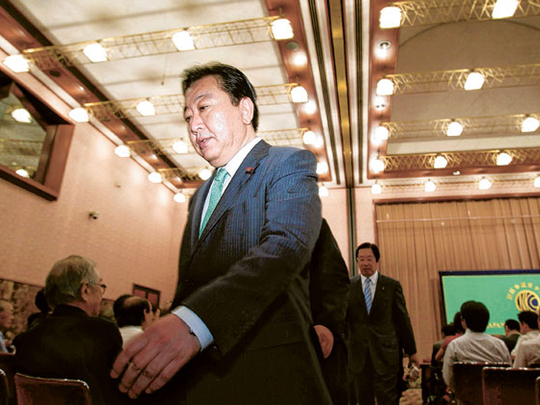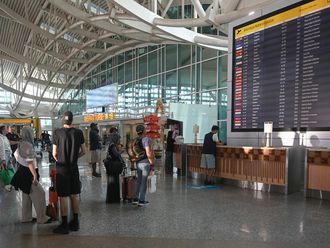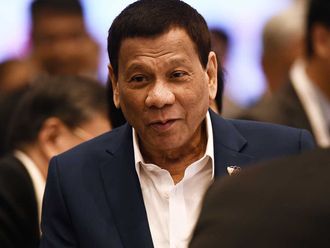
Tokyo: Japan's former Foreign Minister Seiji Maehara who is vying to become Japan's next prime minister says the country should stop building nuclear power plants.
Maehara appeared to take the clearest stand against nuclear power at a news conference on Saturday where five ruling party members aiming to replace Prime Minister Naoto Kan outlined their policy goals.
Another top contender for the job is Economy Minister Banri Kaieda. He says he plans to decommission aging nuclear plants found to have problems during stress tests.
Atomic energy is a key topic in Japan following the tsunami which caused a nuclear accident in March.
Earlier, a close race emerged among the men seeking to replace Prime Minister Naoto Kan and lead Japan as it emerges from its worst disaster since the Second World War, with five declaring their candidacy for the ruling party's top spot.
Kan announced on Friday he would resign after nearly 15 months that have been plagued by ruling party infighting, gridlock in parliament and criticism of his administration's tepid initial reponse to the March 11 earthquake and tsunami and ensuing nuclear crisis.
Public disgust
A new leader is to be chosen on Monday. Public opinion polls show the favourite to replace Kan is former Foreign Minister Seiji Maehara, but Trade Minister Banri Kaieda has emerged as a strong contender after Japanese media reports said he was backed by veteran party power broker Ichiro Ozawa.
The Japanese public, yearning for political unity and resolve in the wake of the disasters, has grown disgusted with the squabbles and blame-trading that have dominated parliamentary sessions.
"It's embarrassing. It's hard to keep track of who's prime minister these days," said Rie Aoki, a housewife in the Tokyo suburb of Fuchu. "It's so upsetting to see them squabbling in parliament. Elementary students have more interesting conversations."
She said she hoped the politicians would focus on the northeastern coastal region of Tohoku that was devastated by the tsunami. "I really want them to work together to think about what Tohoku needs," she said.
The five members of the ruling Democratic Party of Japan who declared their candidacies after Kan's announcement planned to hold news conferences and debates on Saturday and Sunday.
The party's 398 members of parliament are to vote on Monday to choose the new party chief, who will almost certainly become prime minister as the party's majority in the more powerful lower house.
Kan's successor will become the sixth prime minister in five years, perpetuating the high turnover in leadership even as the country grapples with a sluggish economy, an aging population and the enormous reconstruction effort after the country's triple disaster.
Candidates' promises and positions on key policies
Former foreign minister Seiji Maehara: To implement bold fiscal policy steps and drastic monetary easing over the next three years.
Trade minister Banri Kaieda: To take advantage of a strong yen to acquire energy and resources, while conducting intervention.Finance minister Yoshihiko Noda: To take firm steps including intervention against excessive and rapid currency movements.
Former transport minister Sumio Mabuchi: To make bold monetary policy steps and boost money supply over the next three years to beat deflation and stabilise the yen.
Agriculture minister Michihiko Kano: To liaise with Europe and the United States in responding to the current yen rise, and ease monetary policy further.
On fiscal policy and reconstruction
Maehara: Must not rush to raising taxes to fund rebuilding.
Kaieda: To secure funds for rebuilding by issuing no-interest bonds and construction bonds, without tax hikes.
Noda: To eradicate wasteful spending and carry out reform on both revenue and expenditure.
Mabuchi: Must not readily resort to tax hikes for reconstruction but fund the cost by issuing no-interest bonds with a long maturity period.
Kano: It could be possible for the Bank of Japan to directly underwrite reconstruction bonds under certain circumstances.
On nuclear energy policy
Maehara: Not to build new nuclear plants.
Kaieda: Not to build new nuclear plants.
Noda: To establish a nuclear safety agency.
Mabuchi: Safety top priority for nuclear plants.Kano: To find the mix of energy resources while reviewing the dependence on nuclear power.












